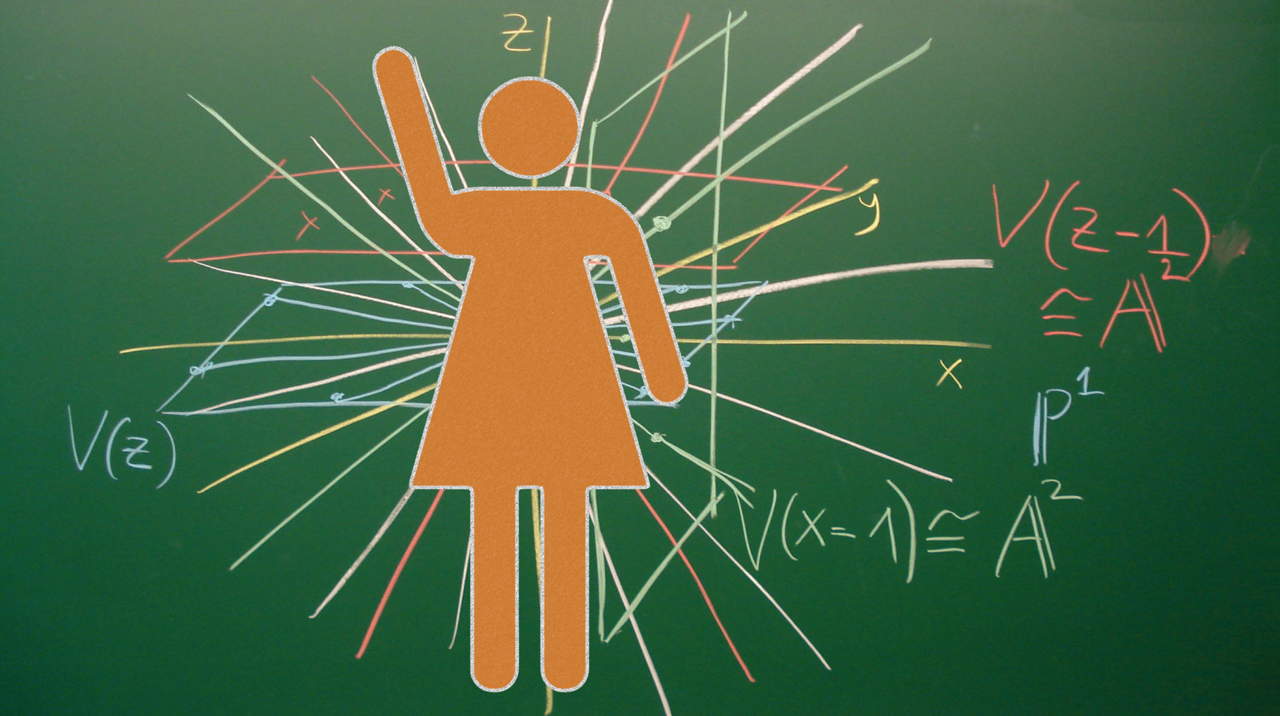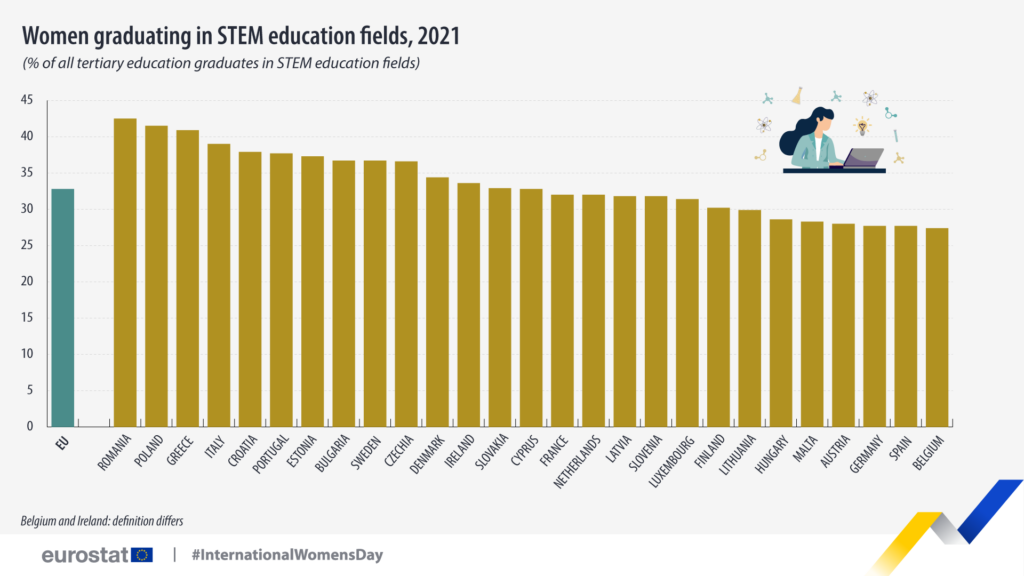
Romania, Poland lead EU for female STEM grads
The highest shares of women tertiary education graduates in the scientific STEM subjects were recorded in Romania (42.5%) and Poland (41.5%), according to new data released by the EU official statistics office Eurostat on International Women’s Day on 8 March.
STEM subjects include engineering, natural sciences, mathematics and statistics, information and communication technologies, manufacturing, and construction, fields where women are largely underrepresented.
On the podium in Central and Eastern Europe (CEE) were Romania, where the ratio climbed from 41.8% to 42.5%, overtaking Poland, where the proportion of STEM graduates from 2020 to 2021 was down from 42% to 41.5% and, in third place, Croatia, whose stats dipped slightly, from 38.6% to 37.9%.
In the middle-ranking CEE countries, where the percentage of female STEM graduates was in the 30s, Estonia was down from 41.4% to 37.3%, Bulgaria was up from 36.4% to 36.7%, Czechia was marginally up from 36.5% to 36.6%, while Slovakia was down 34.2% to 32.9%.

The figure for the EU overall was just under a third, at 32.8%, up from 32.5% in 2020. Just below the EU average, Latvia climbed from 30.9% to 31.8%, while Slovenia saw its ratio rise from 32.9% to 31.8%.
CEE’s stragglers were Lithuania, where the percentage of female STEM grads was down from 30.7% to 29.9%, Hungary, where the ratio stayed at 28.6%, and Austria in last place, up from 26.3% to 28%.
The two highest-ranked countries in Europe as a whole were EU candidates North Macedonia, where the percentage fell from 50.1% to 48.4%, and Serbia, where the ratio of female STEM graduates climbed from 43.2% to 44.4%.
The highest share of women STEM graduates in the EU, but outside CEE, in 2021 was recorded in Italy (39%). The EU’s lowest percentages were reported in Spain and Germany (both 27.7%), and Belgium, in last place, with 27.4%.





